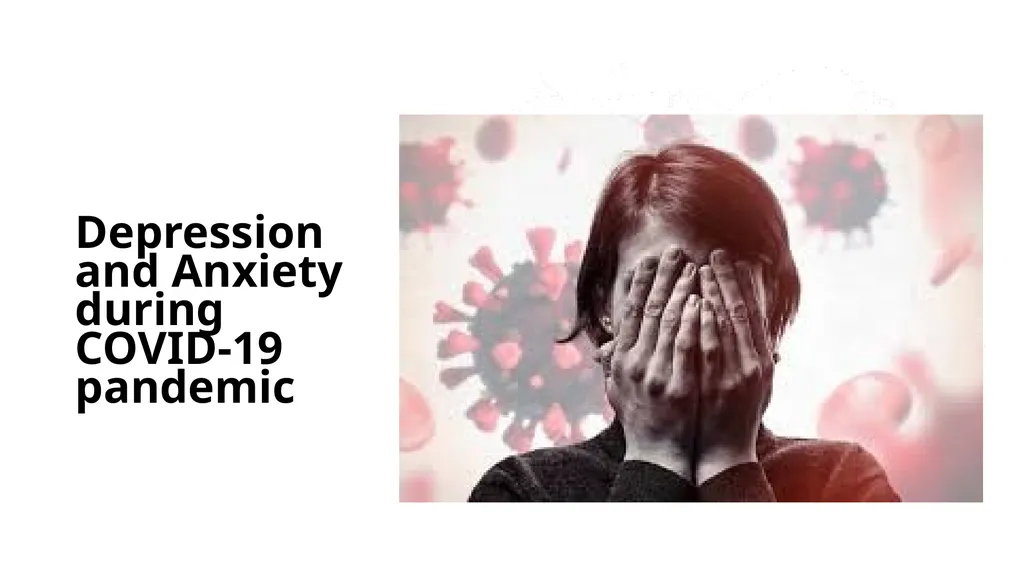Depression and Anxiety during COVID-19 pandemic
Author : lindy-dunigan | Published Date : 2025-05-13
Description: Depression and Anxiety during COVID19 pandemic Why is COVID19 related to depression and anxiety Fear and anxiety about a new disease Social distancing Uncertainty about financial situation or job Loss of support services Changes in
Presentation Embed Code
Download Presentation
Download
Presentation The PPT/PDF document
"Depression and Anxiety during COVID-19 pandemic" is the property of its rightful owner.
Permission is granted to download and print the materials on this website for personal, non-commercial use only,
and to display it on your personal computer provided you do not modify the materials and that you retain all
copyright notices contained in the materials. By downloading content from our website, you accept the terms of
this agreement.
Transcript:Depression and Anxiety during COVID-19 pandemic:
Depression and Anxiety during COVID-19 pandemic Why is COVID-19 related to depression and anxiety? Fear and anxiety about a new disease Social distancing Uncertainty about financial situation or job Loss of support services Changes in routine including sleep or eating patterns Uncertainty about the future Specific issues for health care providers: Need to employ strict biosecurity measures Multiple medical and personal demands Vindegaard N, Benros ME. COVID-19 pandemic and mental health consequences: Systematic review of the current evidence. Brain Behav Immun. 2020 Oct;89:531-542 What can be done? Acknowledge and examine our emotions Traditionally, grief in medical training has been considered weak or unprofessional and health care professionals have been encouraged to keep their feelings inside. Share your feelings Asking for help is not a sign of weakness. Psychological help will not have an adverse effect on your career but no treatment when needed might have….. Self care https://www.who.int/teams/mental-health-and-substance-use/covid-19 Self care Maintain a routine Adequate sleep Nutrition Healthy meals at regular times. Exercise regularly Practice relaxation techniques Do things you enjoy Social activities Limit your consumption of news Separate workspace from living space Each day try to find one thing you can be grateful about Avoid turning to maladaptive techniques of self-care such as overuse of alcohol or other substances https://www.cdc.gov/coronavirus/2019-ncov/hcp/mental-health-healthcare.html Self care-specific considerations for health care providers Communicate with your coworkers, supervisors, and employees about job stress. Remind yourself that everyone is in an unusual situation with limited resources. Identify and accept those things which you do not have control over. Recognize that you are doing the best you can with the resources available. Brief relaxation/stress management breaks We must not overly self-criticize or demand perfection Remember we are all in this together and we will get through this! Helpful links https://www.who.int/teams/mental-health-and-substance-use/covid-19 https://www.cdc.gov/coronavirus/2019-ncov/daily-life-coping/managing-stress-anxiety.html https://www.helpguide.org/articles/depression/dealing-with-depression-during-coronavirus.htm https://psych.ucsf.edu/copingresources/covid19 https://www.cdc.gov/coronavirus/2019-ncov/hcp/mental-health-healthcare.html














